[title]
[message]Sama Homes
Handcrafted Brass Basin Paraat – Traditional Indian Kitchenware for Cooking & Decor
Handcrafted Brass Basin Paraat – Traditional Indian Kitchenware for Cooking & Decor
20 en stock
Impossible de charger la disponibilité du service de retrait
It is ideal to be used as a kneading bowl for atta mixing for your fluffy rotis, parathas, akki roti, rava roti and also is a convenient basin to mix your lemon rice, coconut rice etc.
It can also be used as a serving bowl as well.
Making of Pital bartan in Mirzapur by the Thatheras is traced back to over 3 to 4 centuries.
The soil of Mirzapur is most favourable for moulds as it neither cracks nor melts. We are glad to revive the traditional craft of Mirzapur.
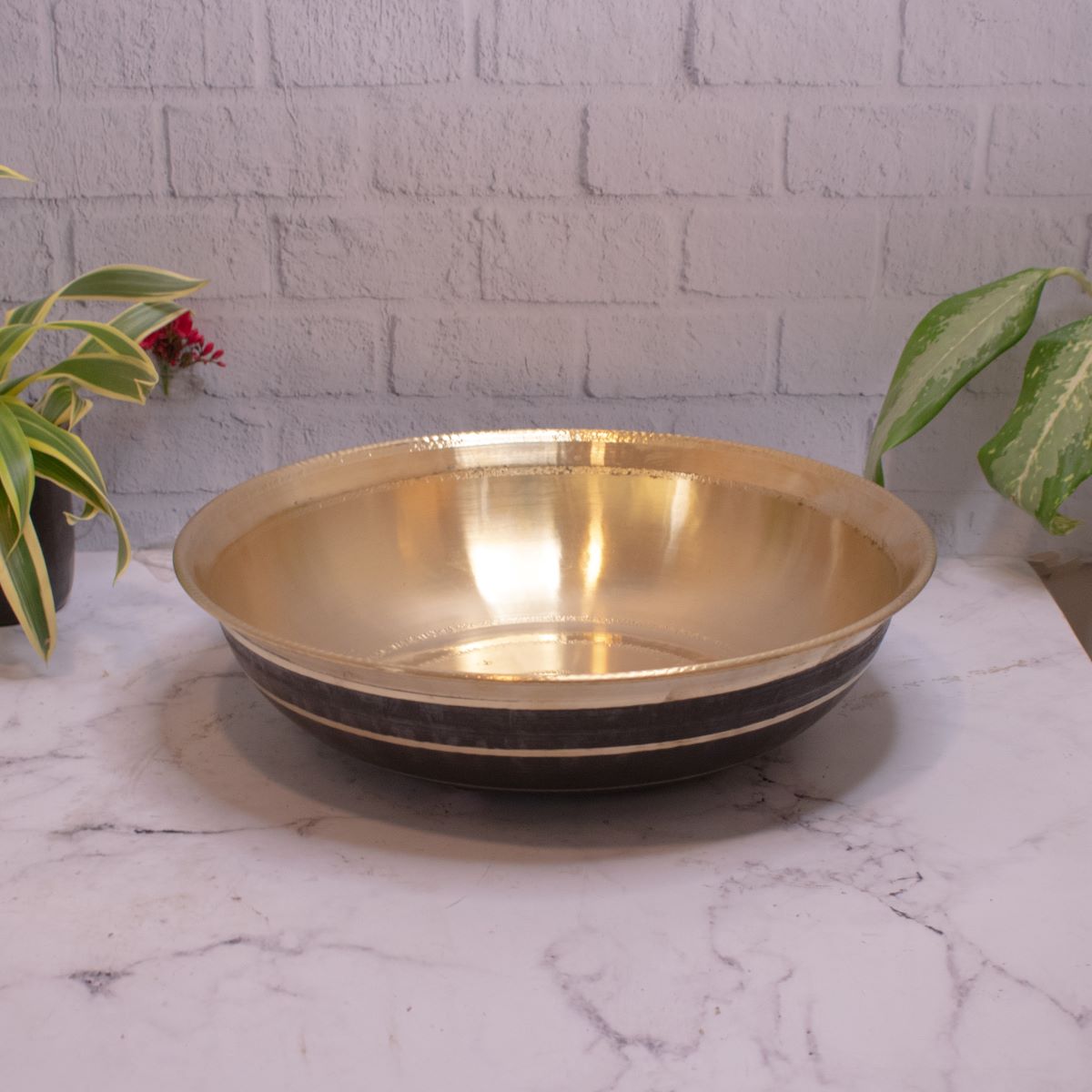
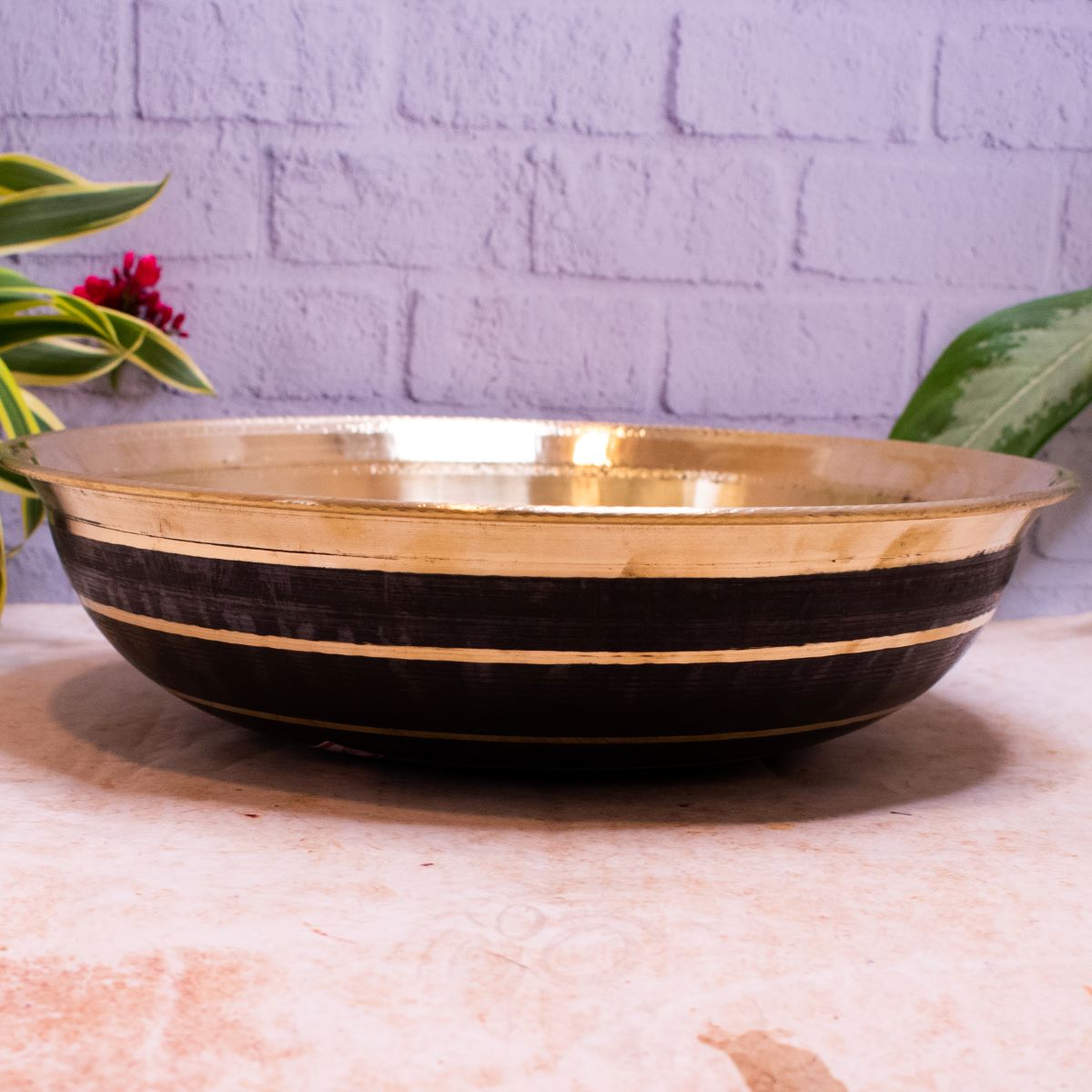
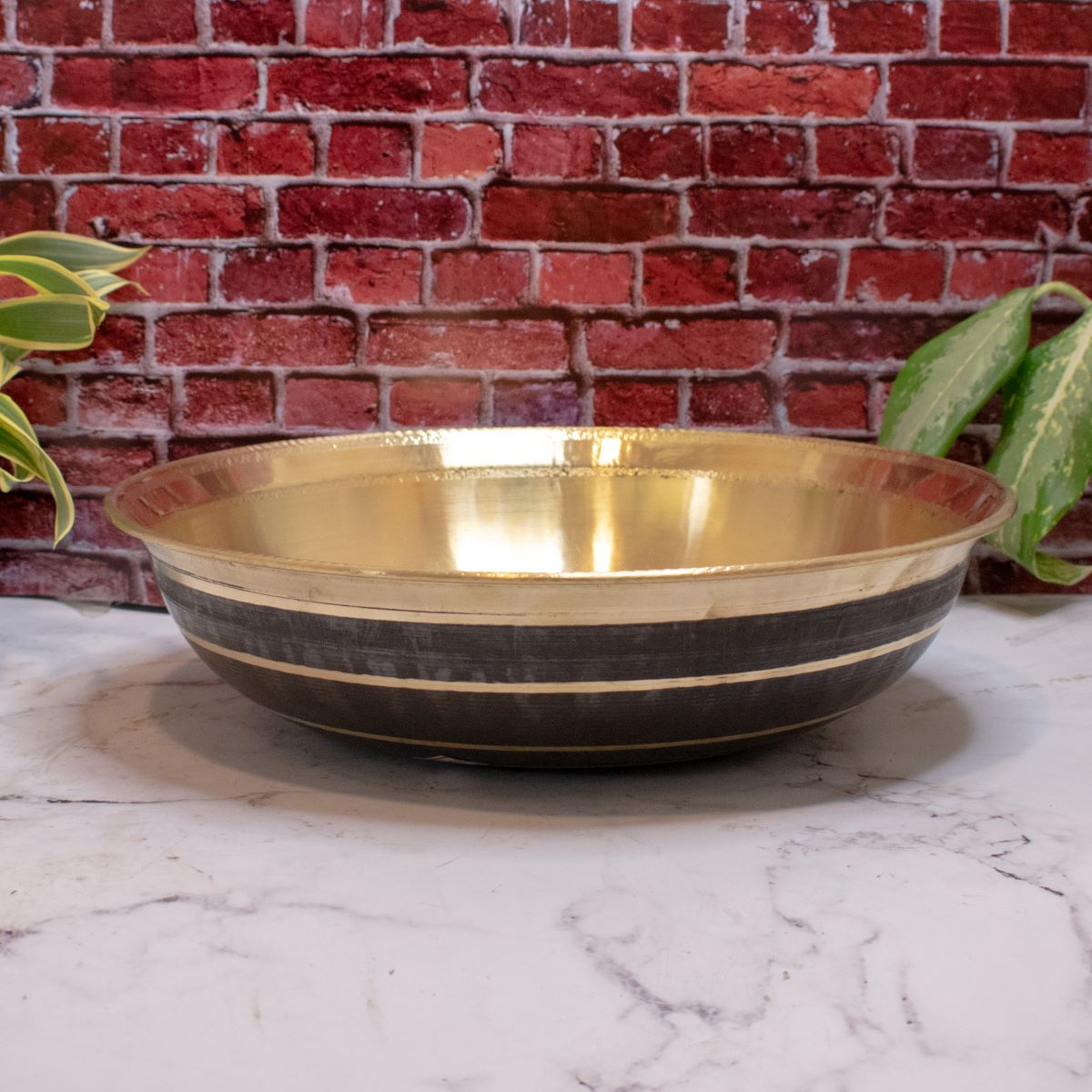
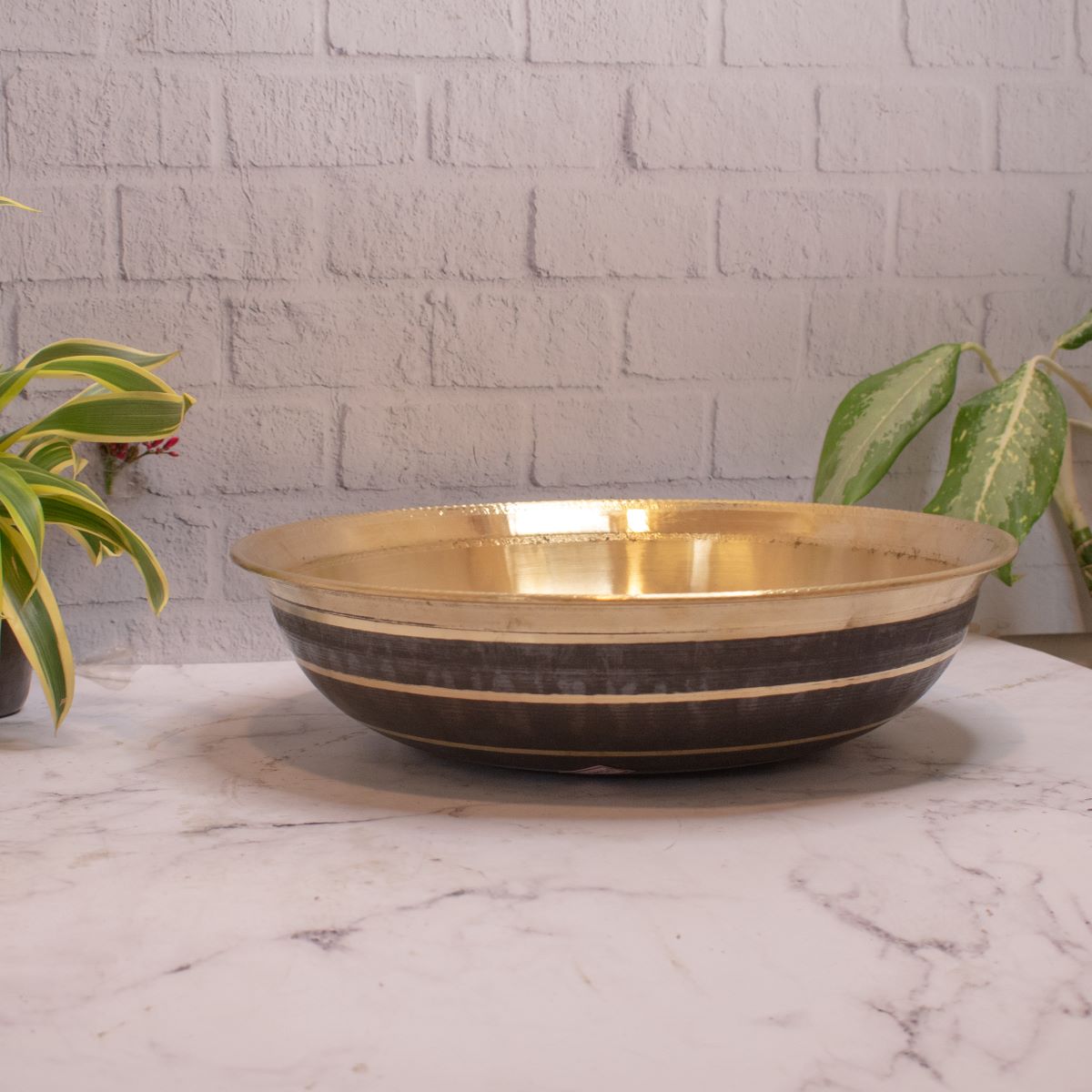
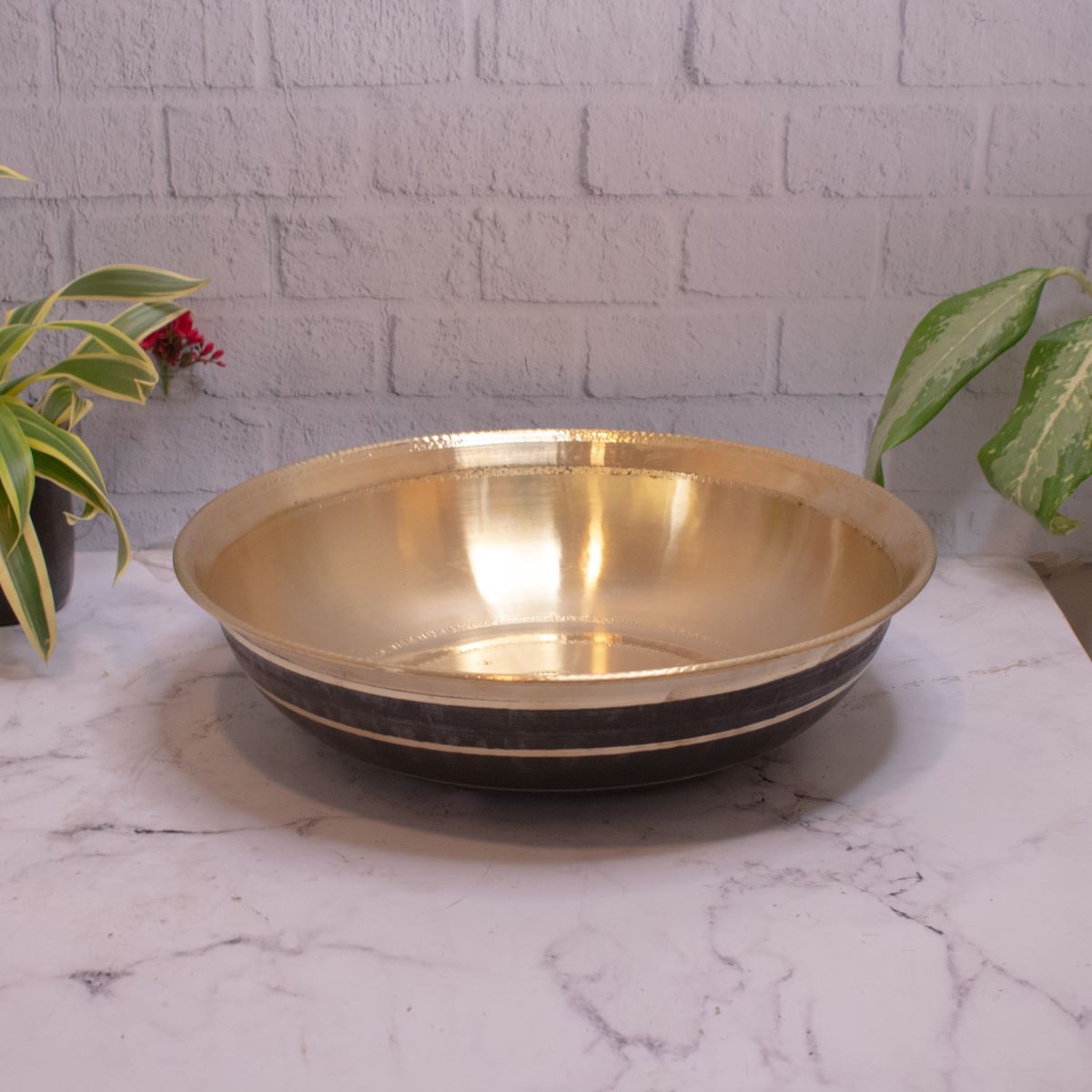

Brass Utensils: A Sustainable Kitchen Choice
Brass, an alloy of copper and zinc, offers a surprisingly eco-friendly option for a variety of household items. Here's how brass contributes to a more sustainable lifestyle. Looking for ways to green your kitchen? Consider brass utensils! These beautiful and functional tools offer surprising sustainability benefits.
Contenu réductible
Benefits of Brass Utensils
- Long-lasting Durability: Brass is a robust metal that can last for generations with proper care. Unlike disposable or flimsy utensils, brass stands the test of time, reducing waste and the need for frequent replacements.
- Reduced Landfill Impact: By choosing durable brass, you divert utensils from landfills, contributing to a cleaner environment.
- Natural Antibacterial Properties: Brass possesses inherent antibacterial properties, which can be beneficial, especially for frequently used cooking tools.
- Heat Conductivity: Brass conducts heat efficiently, ensuring even cooking and potentially reducing cooking times, which can save energy.
How Brass Utensils Reduce Your Carbon Footprint
- Lower Production Footprint: Compared to virgin materials, recycled brass requires less energy to produce, leading to lower greenhouse gas emissions.
- Less Waste, Less Transportation: Durable brass utensils minimize the need for frequent replacements, reducing waste generation and the environmental impact of transportation for new products.
- Multi-generational Use: Brass utensils can be passed down through families, further reducing the need for new production and its associated carbon footprint.
Sustainable Considerations
- Tin Lining: For acidic foods, choose tin-lined brass utensils. The lining protects food from reacting with the brass and prevents metallic taste. Unlined brass is best for dry goods or non-acidic foods.
- Proper Care: Handwashing and occasional polishing keep brass utensils looking their best and extend their lifespan, maximizing their sustainability value.
Embrace a Greener Kitchen
By incorporating brass utensils into your kitchen routine, you're not just adding a touch of elegance, you're making a conscious choice for a more sustainable future. So, ditch the disposables and embrace the beauty and longevity of brass!






